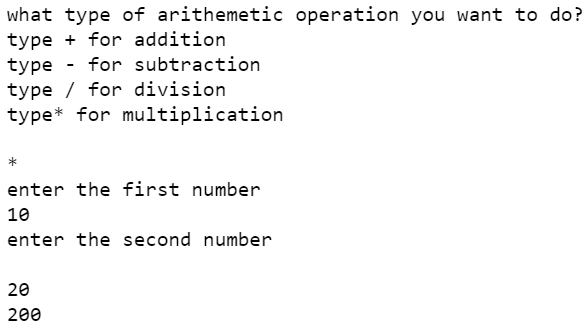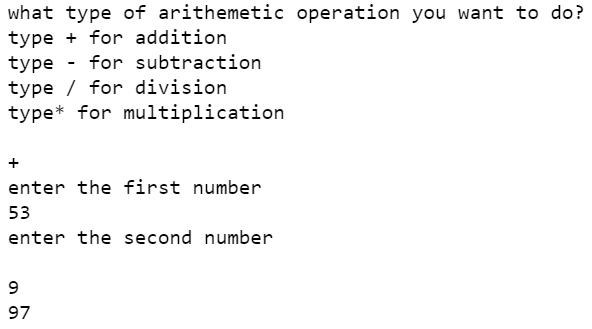使用Python 的错误计算器
有故障的计算器只是一个运行简单任务的计算器,但在某些情况下(由程序员设置)它会给出错误的输出。你们一定想知道为什么我们需要一个有故障的计算器?这种类型的计算器不是必需的,除非您想恶作剧或在某些数学问题的情况下证明他们错了。
方法:
- 首先,我们从用户那里获取他/她想要做什么的输入
- 然后我们写加减乘除的代码
- 最后,我们插入那些我们想要错误结果的案例。
执行:
Python
print("what type of arithmetic operation you want to do?\n"
"type + for addition\n"
"type - for subtraction\n"
"type / for division\n"
"type* for multiplication\n")
# taking input
type_of_calculation = input()
print("enter the first number")
A = int(input())
print("enter the second number\n")
B = int(input())
b = "+"
c = "-"
d = "*"
e = "/"
# setting normal and false condition for calculator
if type_of_calculation == b:
# for addition
if (A == 53 and B == 9) or (A == 90 and B == 52):
print(97)
else:
print(A+B)
elif type_of_calculation == c:
# for subtraction
print(A-B)
elif type_of_calculation == d:
# for multiplication
if A == 45 and B == 3 or A == 4 and B == 67:
print(575)
else:
print(A*B)
elif type_of_calculation == e:
# for division
if A == 5 and B == 63:
print(40)
else:
print(A/B)输出:
对于正常情况

对于假条件
